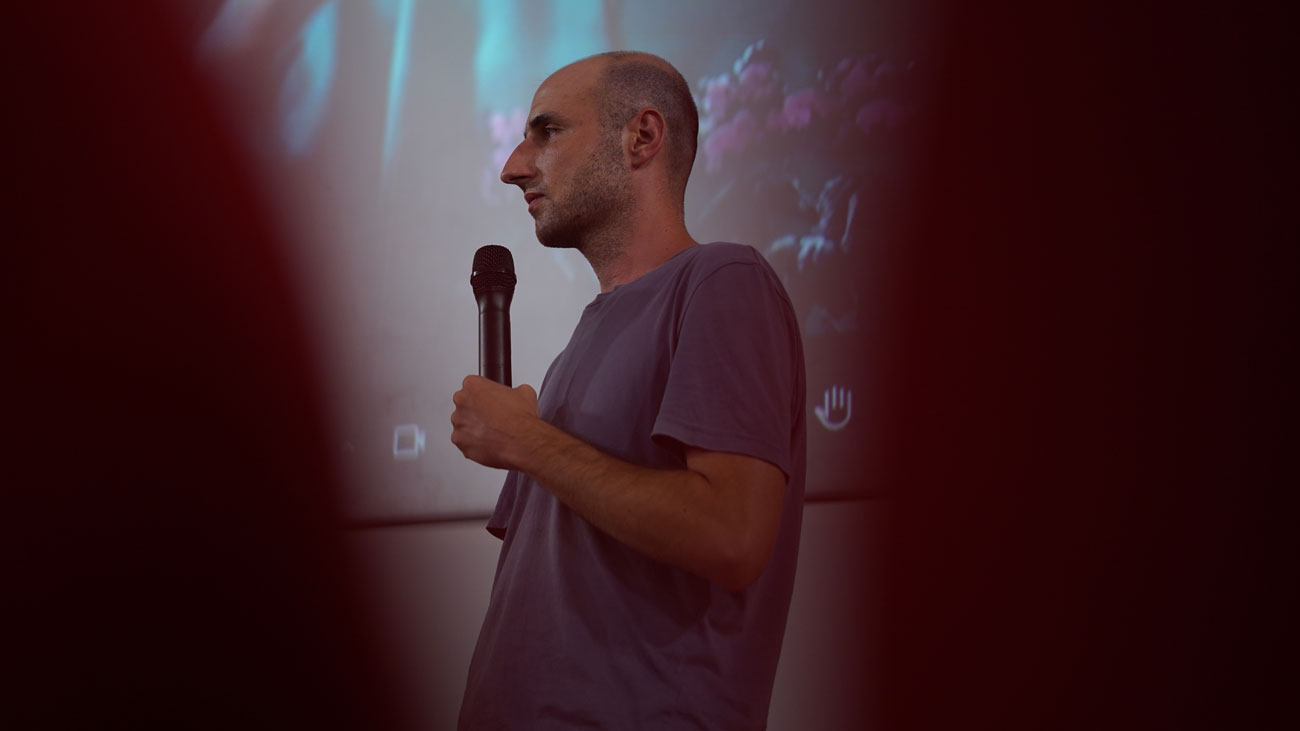
MINA ADAMOVIĆ, TEEN DOC WORKSHOP producer IN CONVERSATION WITH LUKA PAPIĆ
I had the pleasure of speaking with Luka Papić, an award-winning director from Serbia. His docu-fiction Without (63 min, 2022) won the Jury Award for Best Mid-Length Film at the Visions du Réel festival in Nyon, as well as the Grand Prix and Best Editing Award at the Beldocs Festival in Belgrade.
In 2023, Luka took part in Interakcija: Short Docs Festival, where he served on the jury.
This year, Luka returns to Interakcija as a mentor to a new generation of young Teen Doc participants. I was interested in how he perceives documentary film, where he finds his stories, and how he approaches the creative process from beginning to end.
Does truth exist in documentary film?
Documentary film, like other art forms, is a powerful tool for unveiling truths that cannot be easily explained in other ways or seen with the naked eye. A film is always the result of the author’s personal vision; even when the author aims to present an “objective” picture of the world, that “objective” picture is still shaped by their own intention and perspective. I do not come from the position of classical documentary filmmaking—I don’t believe that documentary film has a journalistic duty to be “accurate,” so authenticity in that sense does not concern me. I accept that every film, including documentary, is a kind of illusion. The only real question is whether the author manages to earn our trust as viewers. Can a director make their view of a certain reality, problem, or situation feel relevant to us? Alongside truth, there is also the question of ethics. We all know, for example, how easily journalists can manipulate facts—and, on the other hand, how poetry can be profoundly accurate.
Whose stories should documentary film tell?
Documentary film should tell stories that help us understand the world and life—in other words, our stories. No matter how small and personal, or, on the other hand, large-scale, political, or apolitical the subject may be, the story should be something that can move people.
How much does the idea change from the beginning of the process until the final cut in documentary filmmaking?
In my case, the core idea has never changed during the editing process, but the structure has—to some extent. It often turns out that certain elements simply don’t work as originally planned, and they need to find a new place. Sometimes, during that process, an element proves unnecessary and is removed from the film, while other times something that isn’t working is replaced with new material or even re-shot. A documentary is a bit like a Rubik’s cube—when you move one part, you often have to move another, and another… but I have yet to experience a final result that strays from the original idea.
